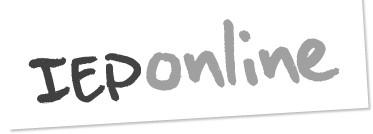Onslow College – transcript 2
[On the screen]
The updated Individual Education Plans (IEP) guidelines were published in September 2011.
In this clip, John Robinson, HOD Learning Support talks about the effect of the new guidelines on the IEP process at his secondary school.
Narrator:
Has Onslow College made changes around the IEP process since September 2011?
John Robinson:
We now have an IEP sort of process that is robust and has the student at the centre.
The senior management have sort of picked up on that, and they have given staff release time to actually attend IEPs. So the staff are invited to attend, they get relief, and there is certainly a lot more cohesion and a lot more organisation around the IEP.
The spinoff for that is that everyone sort of has an increased involvement, and there’s a lot more ownership of the student at the centre by the staff concerned. There’s no longer a rush. The preparation is there and they become a far more effective tool.
Narrator:
How have the new guidelines affected the IEP process?
John:
By increasing the attendance and actually having a sort of more holistic group of people attending the IEP, reflects the philosophy of the school or the journey that we’re on with the school, that all students with learning challenges belong to the school community. So therefore, the attendance creates a shared ownership, and a shared knowledge of the student and the goals, and how we’re going to actually get positive outcomes with the student.
Narrator:
Who is part of the IEP team?
John:
We have an identified register of students with either ORS-funded students or high-need students that have IEPs, and each of those has an attached key worker, whether they are in junior school or senior school. They then become the lead personal and actually will follow the Onslow College guidelines to pull a group of people together.
We try to be as inclusive as possible in getting the people that really matter, so we would aim to get all the subject teachers that the students are involved with. If guidance were involved, the Deans have actually stepped up, and they are involved with every IEP. Certainly in the senior school, we would look forward to having the transition providers like Emerge and Gateway and our STAR coordinator here.
So really it’s about looking at what the pathways for the students are, what the outcomes for the students are, and in getting that team around – and having the parents, the carers, the whānau, actually as part of that as well.
I think one thing that we need to improve is actually having a greater student voice in the IEP. But we’re still working towards that about what is meaningful for the student rather than just being there in body. And actually letting them have a positive influence on their own future really, and on their own decisions, and that’s a challenge for us.
Narrator:
What is the future vision for learning support students?
John:
I would love to see a sort of evolving process really where learning support teachers could actually step out of the IEP process and actually up-skill Deans or a Lead teacher or a Learning Area leader to become part of the IEP process. So you have a degree of sustainability about it, but you also have a degree of moving special needs, or the response to special needs, away from maybe learning support that actually it might become a department issue that they run, and IEP for a student who’s particularly strong in his subject area or a Dean would take the responsibility.
I mean, I see my role essentially as a sort of educator, as a facilitator, a sort of mentor, but I don’t see myself indispensable to the process.
Narrator:
What resources do you use?
John:
The people that are involved have access to the IEP guidelines, to the literature, and certainly the Collaboration for Success that’s on the school-wide network.
We’ve encouraged, when we invite staff to the IEP process or to the IEP, we usually send a little fact sheet, hint sheet, and sort of guide them to some further fact finding for themselves so they feel that they are coming equipped knowing what an IEP is. For some of our first year teachers, we find that they need a whole sort of induction as to what the IEP process is. That raises some questions about teacher training. But certainly, we are doing work around up-skilling teachers in what the IEP process is, the process itself, what it means, what the outcomes are, and how to attain the outcomes for the student.
Our teacher aide team are also feeling increasingly confident about making positive contributions, certainly being integral to the success of the IEP and actually taking a leading role in those IEPs as well.
Narrator:
What are the challenges?
John:
The challenges in relation to the IEP process are making sure that the IEP is just not a document that gets written up and then sort of shelved away – that it is actually a living, working, breathing document that people are aware of, and people can revise, and edit, and adapt as necessary. Certainly I think one of our challenges is to make sure that we use the IEP process in a really flexible way and actually look at the IEPs, that they are not the same for all students.
I think it’s about actually challenging ourselves as a school community to be flexible around them, and that’s probably one of the big challenges that we have. But the willingness of the staff, and the acceptance of the staff, and the positivity of the staff to contribute to the IEP process has probably double or tripled since I’ve been here.
« Back to Onslow College

